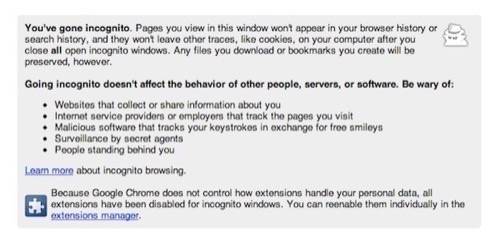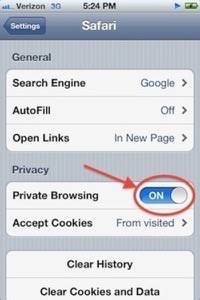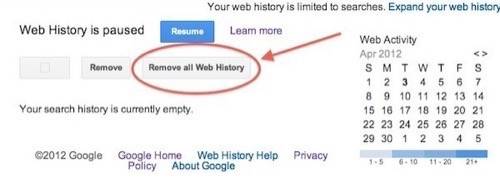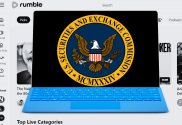Google’s one unified privacy policy went into effect on March 1. The new privacy policy makes it easier for Google to bring user data across its services, but the actual privacy preferences remained unchanged. Google has integrated search, email, YouTube, social and work. The few exceptions to the unified privacy policy include Books, Chrome and Wallet, as those each have industry-specific laws in place. With the unified privacy policy in mind, and the idea that your browsing history could be used against you, is it even possible to keep your information private? We spoke with two security experts, Security Evangelist Stephen Cobb of security solutions provider ESET, and Alisdair Faulkner, chief products officer of cybercrime defender platform ThreatMatrix, to get a better idea of what you can do to keep your browsing history as private as possible.

“If you are very concerned about privacy, you can go to considerable lengths to hide what you are doing with Google,” says Cobb. “But you can’t dictate your behavior based on your privacy settings, whether you’re an open book or not.”
Tip #1: Sign Out of Google When You’re Done
This seems way too simple. So simple, in fact, that it’s easy to forget, especially if you’re in a rush to leave the office. Ready? Sign out of your Google account.
“If you’re going into a Web browser and Google has logged you in, Google is collecting cookies,” says Cobb. “But you should log out first of all, and then it won’t know if it’s you using the browser.”
But even if you’re logged out, Google will still be able to see your computer’s IP address.
Tip #2: Turn on Private Browsing in Your Web Browser
“Go into private browsing mode,” says Faulkner. “That way, if you’re a closet Justin Bieber fan, you can search for Bieber and still return to your regular browsing later.”

In Google Chrome, switch it to “incognito browsing,” which means that the pages you search won’t appear in your browser history or search history. They also won’t leave traces like cookies on your computer. But even if you do go “incognito,” websites may still collect or share information about you. Incognito keeps Google Chrome from storing information about you, but it doesn’t mean that you’re safe from other sites.
On Firefox, you can turn on private browsing and “do not track”. Similarly, in Safari, Opera and IE9, turn on “in private.” The private browsing features erase your cookies after you close the window. If you’re on an iPhone, go into Settings > Safari, and turn on private browsing.
“The private mode can help, but you have to be careful when you are in private browsing mode. It doesn’t recognize that in the same way it sees private browsing users,” says Alistar.” So while you’re still in private browsing mode, it’s liable to track your behavior.”

If you really want to play it safe, don’t use Google. Try a search engine like DuckDuckGo, which says up front that it does not track or bubble you.
Tip #3: Go Anonymous With Anonymizer or Tor
“If you want to run your Internet connection through something like Anonymizer, then Google won’t be able to see your IP address,” says Cobb.
Anonymizer hides your IP connection, protecting all of your Internet activity no matter where you are or what network you’re using.
Tor, which you can find on torproject.org, is a free software and open network that defends against network surveillance, keeping you anonymous around the Web. “Tor and TorProject were developed with people in repressive regimes in mind, to ensure anonymity,” says Cobb. “It ensures that what you’re searching for is not seen.” These are for people who don’t want what they’re doing on the Internet to be tracked back to their IP address.”
Disconnect.Me believes that a user’s personal info should “be treated with respect, that you should be the steward of your digital self, and that you should own your own data.” The platform aims to put users back in charge, allowing them to decide who actually does what with their online data. Disconnect.Me is a browser plugin, quickly installed. In Chrome, users can manage it through the Extensions option in the Window menu.
The makers of Disconnect.Me also created Facebook Disconnect. This is not Google Search per se, but with the massive integration of Facebook Connect, it’s important not to overlook the information that Facebook, too, is gathering on you. Facebook is notified when a user visits a site on the Web that uses Facebook Connect, which also has a slippery history of leaking info to third parties.
Tip #4: Use a VPN
“VPNs are becoming another tool,” says Faulkner. “Using a VPN makes it harder to track someone back to the originating endpoint. They’re harder to bypass.”
AnchorFree is essentially a VPN to the user’s IP address, so your IP address is theirs and your real IP address is hidden. It makes sure that every page you visit is as secure as a banking site, turning HTTP traffic into HTTP(S). AnchorFree also detects and blocks malware, including malware sites, illegal or phishing sites, infected sites, and spam sites and content farms. It is available on iPhone, Mac, Android and Windows. Anonymizer, the service we mentioned above, also uses a VPN tunnel to make online activities private and secure.
Tip #5: Adjust Your Google Web History Settings
“Go into your Google Dashboard and look at the Google privacy settings, adjusting them to limit the amount of information Google collects,” says Cobb. “Private browsing features erase your cookies after you close that window.”
This will at least ensure that your Web history isn’t constantly being stored by Google forever. Go to Account Settings in your email. Scroll down to “View, enable, or disable Web history,” and click on “Go to Web history.” Go to “Learn More” and then “Remove Items from your Web History.” Log in to your web history, and select “Remove all Web History.”

Disabling this Web history doesn’t prevent Google from gathering and storing information for its internal purposes, but it might make you feel more at ease. According to the DailyMail UK, Google will anonymize this data in 18 months’ time.
Google Search, Sensitive Topics and You
A recent Pew report found that most Americans are “anxious” about the personal information that search engines and websites collect from them. A total of 65% say that search engines collecting information is a bad thing, narrowing search results to ultimately create a “filter bubble”-like effect. Only 29% believe that search engines collecting information in order to shape future search results is indeed a good thing.
“There are a lot of benefits to Google seeing what you can do, which is to tailor to your interests,” says Cobb. “If you’re uncomfortable with that, turn on ‘do not track,’ clear cookies when you quit a session, and if you really don’t want activity traced back to you, use an anonymizing service. It all depends on what you’re using Google for – and if you’re researching a sensitive topic, you might want to think about doing it incognito.”
Google defines “sensitive personal information” as “personal information relating to confidential medical facts, racial or ethnic origins, political or religious beliefs or sexuality,” according to the Google Privacy Policy.
Google says that it will only share this type of information with your consent: “We will share personal information with companies, organizations or individuals outside of Google when we have your consent to do so. We require opt-in consent for the sharing of any sensitive personal information.”
It all comes back to personal preference, and the user’s trust in Google. After all, it is tracking you.
Lead image courtesy of Shutterstock.





